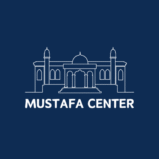
يَا أَيُّهَا الَّذِينَ آمَنُوا ادْخُلُوا فِي السِّلْمِ كَافَّةً
What is Islam?
Islam is the second largest religion in the world and it’s fastest growing. Although the word Islam is heard constantly in the press-very few non-Muslims have little if any knowledge about it. The word Islam in Arabic means “submission.” It comes from the root letters “s, l, and m” which mean peace. In essence, a Muslim is one who attains peace through submitting their will to the will of Allah. Allah is the the arabic name for God. It literally means “The God.”
Muslims believe that from the beginning of the creation of the world God had always sent Prophets to mankind. They were sent to teach people the concept of tawhid. Tawhid means the pure unity of God’s Oneness. As time passed, the message of God’s Oneness would become distorted by practices such as idol worship, or people would start falling into indecent and immoral behavior. God would then send another Prophet to remind the people of God’s Oneness and their responsibility to perform good deeds and shun bad deeds.
Along with the teaching of tawheed, Prophets were sent to teach their people how to worship God properly. The Prophets would also teach them codes of conduct and morality. Simultaneously, they would warn their followers about the punishment for evil doers in the next life and the reward for the doers of good. Muslims believe that God has sent at least 124,000 Prophets to the different nations of mankind. Amongst them 25 are mentioned by name in the Qur’an. The majority of them are also mentioned in the Torah and the Bible.
The Prophets can be divided into two groups Nabis (Prophets) and Rasuls (Messenger Prophets). So, Rasuls are prophets that were given a Divine revelation. Muslims believe that Prophet David (peace be upon him) was given the Zabur-Psalms. Prophet Moses (peace be upon him) was given the Tawrat-Torah. Prophet Jesus (peace be upon him) was given the Injil-The Holy Bible. Along with those, Muslims believe that Prophet Abraham was given some And that Prophet Muhammad (peace be upon him) was given the Quran-The Holy Qur’an. Muslims believe that the Qur’an is the unaltered word of God, and has remained so for over 1,400 years and will remain so because it is under Divine protection. In essence the Qur’an is a continuous miracle of God.
Who is Prophet Muhammad (peace be upon him)?
Muslims believe that Prophet Muhammad (peace be upon him) was sent as the final prophet to all of mankind. He was also unlettered, meaning that he (peace be upon him) did not know how to write. Prophet Muhammad (peace be upon him) is the seal of the prophets, and after him (peace be upon him) no other prophet will be sent.
Prophet Muhammad (peace be upon him) was known before his Messengership to be the most trustworthy and honest man in Mecca. He (peace be upon him) was given the title al-Amin, the Trustworthy One. He (peace be upon him) was also known for having a very righteous character, and abhorred all indecencies and foul actions and language. Because of this he (peace be upon him) was deeply loved and respected even before his (peace be upon him) Messengership.
At the age of 40, Prophet Muhammad (peace be upon him) was on the Mountain of Light in the Cave of Hira. It was the 27th night of the month of Ramadan. Prophet Muhammad (peace be upon him) was mediating in the cave as was his usual practice. Suddenly, the Angel Gabriel (peace be upon him) came to him (peace be upon him) and squeezed him three times and told him (peace be upon him) to read. Prophet Muhammad (peace be upon him) said to Angel Gabriel (peace be upon him) that he (peace be upon him) does not know how to write.
Finally, the Angel recited to him the first four verses of the chapter entitled “The Clot.” He said to him, “Read in the name of your Lord, who created-, Created man from a clinging substance, Recite and your Lord is the Most Generous, Who taught by the Pen, Taught man that which he did not know (Quran 96:1-5). Prophet Muhammad (peace be upon him) became very frightened and he (peace be upon him) ran out of the cave, where he (peace be upon him) saw Angel Gabriel for a second time- this time much larger filling the entire horizon.
When he (peace be upon him) arrived home frightened, he (peace be upon) told his (peace be upon him) wife Khadija (may Allah be pleased with her) to cover him up with a blanket because he (peace be upon him) feared something bad might have happened to him (peace be upon him). However, Khadijah reminded him (peace be upon him) that God would never do such a thing to him (peace be upon him) because he (peace be upoh him) had good relathionships with his family, was kind to the poor, and generous to his (peace be upon him) guests.
After sometime he (peace be upon him) started to receive more revelations of the Qur’an commanding him (peace be upon him) to warn the people. The entire revelation of the Qur’an took place over 23 years. In 23 years Prophet Muhammad (peace be upon him) guided the Arabs back to the worship of One God.
Here is a list of biographies in English for those who want to gain more knowledge about the life of Prophet Muhammad:
1. Muhammad: A Prophet for Our Time by: Karen Armstrong
2. In the Footsteps of the Prophet by: Tariq Ramadan
3. The Sealed Nectar by: Safi-ur-Rahman Al-Mubarakpuri
4. Muhammad: A Very Short Introduction by: Jonathan A.C. Brown
The Seven Articles of Faith
There are seven articles of faith that are obligatory for a Muslim to believe in.

1) Belief in Allah
One must believe that Allah-God, is the only and true God. He has no beginning and no end. It is obligatory to believe that He has no resemblance to any of His creation. One must also believe that He is not similar to any of His creation and is not bound by any direction, form, or contained by any space. It is obligatory to believe that God does not share His Power with another partner, son, or child.

2) Belief in the Angels
One must believe that the Angels are the creation of God. They are pure beings made of light. They are neither male or female. The angels do not eat or drink or have physical impulses that human beings have. They do not have free will- therefore they never disobey God. They have the ability to change their forms when they interact with human beings. When they do this, they take a male form.

3) Belief in the Divine Books
One must believe in all of the Divinely Revealed Books.
Which are the:
1) Scrolls of Prophet Abraham and Prophet Moses (peace be upon them).
2) The Torah of Prophet Moses (peace be upon him)in its original form.
3) The Psalms of Prophet David (peace be upon him) in its original form.
4) The Holy Bible of Prophet Jesus (peace be upon him) in its original form.
5) The Holy Qur’an of Prophet Muhammad (peace be upon him)- the unaltered word of God and the final revelation to mankind.

4) Belief in the Prophets and Messengers of Allah
One must believe that God had always sent guidance in the form of male Prophets to mankind. They all possessed the attribute of truthfulness, and being divinely protected from sin. Amongst the Prophets a few of them were chosen as Messengers. Messengers were those who were given Divine Revelation. Twenty-five of them were mentioned by name in the Qur’an. However, Prophets were sent to every nation of people. The number of Prophets sent is at least 124,000.

5) Belief in the Last Day
One must believe that God will judge all of mankind on the Day of Judgement. God will resurrect all of the souls with their bodies from their graves. He will reward the doers of good and punish those who were persistant in sin.

6) Belief in Life after Death
One must believe that after the process of Judgement- each person will either live eternally in the Heaven or the Hell-fire.

7) Belief in Pre-Destination
The Five Pillars of Islam are the obligatory acts of worship that are incumbent on every Muslim to perform.
The Five Pillars of Islam
1) One must believe that all things that take place in one’s life is from the wisdom of
the All-Knowing and Almighty God.
2) Salat- Prayer
A Muslim must pray five times a day facing Mecca.
3) Sawm- Fasting
A Muslim must fast from sunrise to sunset during the Islamic lunar month of Ramadan.
4) Zakat- Charity Tax
A Muslim who has excess surplus wealth must pay a yearly tax on the surplus. This tax is taken to purify their wealth and is given to 8 categories of charity.
5) Hajj- Pilgrimage
A Muslim who is financially and physically able to must travel to Mecca to perform a pilgrimage-Hajj. It is only obligatory to perform this Hajj once in one’s lifetime.
